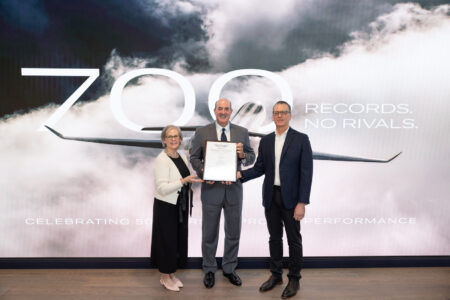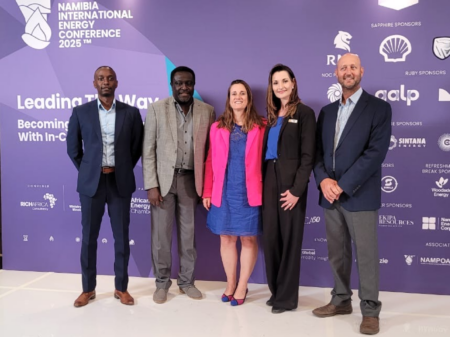Air Partner, a global aviation services group, has increased the quantities of carbon being offset on its flights by 65% over the past year, compared to quarterly data.
Carbon offsetting of its charter and private jet flights has increased the past two quarters since switching its carbon offsetting scheme from opt-in to opt-out for its customers.
Air Partner, like much of the aviation industry, recognizes that parts of its operations take their toll on the environment. Switching to the opt-out scheme was a significant step-change for Air Partner, as the company previously operated carbon offsetting on an opt-in basis, to mitigate environmental impact.
Carbon offsetting gives travelers the opportunity to support projects to compensate for their journey’s emissions, and an opt-out model has been recommended by the UK’s Government’s Department for Transport to increase uptake.
Last year, Air Partner announced its partnership with Climate Impact Partners, formerly known as ClimateCare, ensuring the carbon emissions from flights can be calculated and offset by adding a cost directly to the flight’s price. Together with the world’s leading companies and quality project partners, Climate Impact Partners will cut one billion tonnes of CO2 by 2030 to transform the global economy, improve health and livelihoods, and restore a thriving planet.
Carbon offsetting is a step that many aviation businesses are taking to mitigate carbon emissions by making real reductions in the amounts of carbon in the atmosphere that would not have happened otherwise. Projects used to offset emissions also provide funds for scaling renewable technologies and delivering energy efficient solutions in developing countries, ensuring a focus remains on the development, production and uptake of long-term solutions.
Through the carbon offsetting program, Air Partner and its customers have been able to support several community projects in developing countries such as energy-saving cookstoves in Ghana, an ongoing project which has been active for the past 14 years. It has also helped towards the installation and operation of more rooftop solar-powered heating and water systems in India, and the project has recently been able to expand to offer these solutions to small and medium-sized businesses in the community.
In addition to the carbon offsetting program, Air Partner is committed to a range of initiatives such as partnerships with environmental and social impact organisations including various food and hygiene banks as well as supporting projects such as Gatwick Greenspaces which works to benefit the local community, wildlife and countryside. The company has also implemented a carbon reduction program for its offices moving to renewable energy, offering employees access to electric vehicles via a salary sacrifice scheme, creating infrastructure for electric vehicle (EV) charging and going paperless.
Mark Briffa, CEO at Air Partner said, “We are really pleased with the progress we have made so far and the interest we have seen to offset flights as a result of our switch to auto-enrolment. However, we are aware that this is just one part of our ESG strategy that we are focussed on to reduce carbon emissions, support local communities and minimise our impact on the environment, and we have a long way to go. Looking to the future, we’re introducing additional initiatives for our customers, from tree planting to sustainable onboard catering and the option to select aircraft via an energy efficiency rating scheme, ensuring we continue our commitment to becoming more eco-friendly.
“Consumers are increasingly concerned about climate change and conscious of their impact on the environment, and this is reflected amongst our private jet and group charter clients, who are being more mindful than ever about when and how often they travel, whether for business or leisure.
“It is incredibly positive to see our customers taking steps to minimise their carbon emissions and doing what they can to make a difference.”





